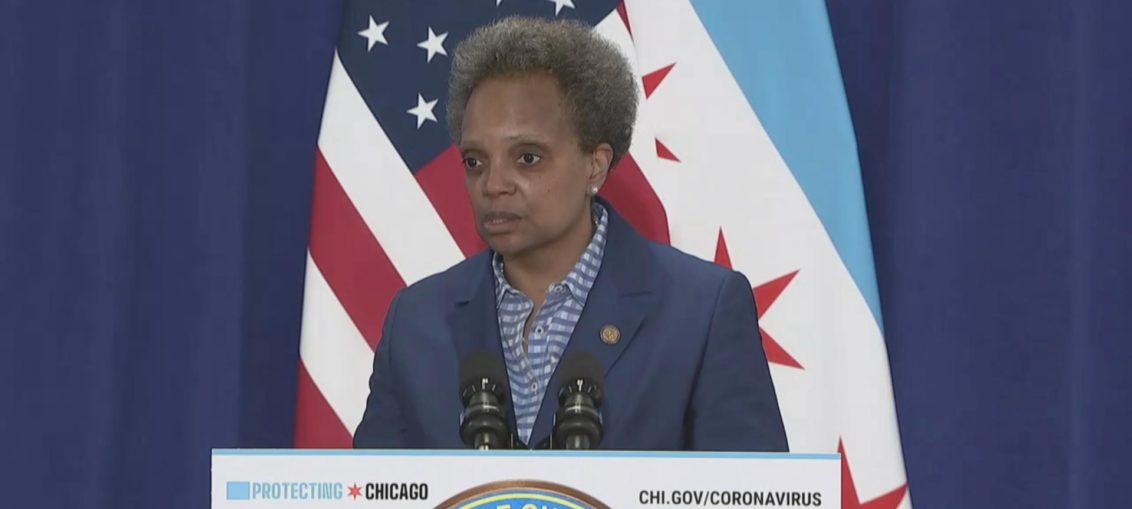
Chicago landlords can be prohibited from evicting tenants whose funds had been impacted by means of the coronavirus pandemic with out first looking to negotiate with them, underneath a mayoral plan tailored to stave off a wave of evictions.
With Cook County judges poised to renew eviction and foreclosures hearings on July 6, Mayor Lori Lightfoot has crafted a so-called “eviction protection” ordinance to decelerate the ones court cases. The City Council’s Housing Committee is poised to approve the plan Monday, adopted by means of a complete Council vote Wednesday.
The mayor’s plan would limit landlords from evicting with out first ready 5 days for the tenant to ship a “Notice of COVID-19 impact” that outlines task loss, lowered hours or different extenuating monetary cases tied to the pandemic.
“If at any time prior to or during this five-day period, the landlord receives from the tenant a notice of COVID-19 impact, the landlord shall wait an additional seven days [negotiation period] after expiration of the five-day … notice of termination before filing either an eviction action against the tenant or maintaining an action for rent and/or damages,” the ordinance states.
The negotiation duration might come with: accepting a reimbursement plan that “amortizes each missed rent payment over not less than 60 days”; filing the topic to mediation or binding arbitration; making use of the tenant’s safety deposit towards the unpaid hire or offering the tenant with an “opportunity to move out,” the ordinance states.
If no settlement is reached and the owner initiates eviction court cases, they might first must turn out to the courtroom that “reasonable attempts” have been made to barter with the suffering tenant.
On April 23, Gov. J.B. Pritzker issued an govt order discouraging evictions all over the stay-at-home shutdown precipitated by means of the pandemic. Lightfoot’s so-called eviction “moratorium” would stay in position 60 days after expiration of the governor’s govt order.
Chicagoans who’ve noticed their jobs and paychecks disappear all over the pandemic had been crying out for hire reduction and speaking a few hire strike to push their call for.
What they’ve gotten to this point from Lightfoot is a non-binding “Housing Solidarity Pledge” signed on April 29 by means of residential housing teams, landlord associations and lenders to turn “flexibility and restraint” in coping with one any other all over this exceptional time of hardship to stop the pandemic from triggering any other wave of foreclosure.
Participating landlords have agreed to supply tenants grace sessions with phrases that “avoid repayment at the end of the deferral period.” They additionally promised to waive overdue charges for neglected bills and make allowance renters who leave out bills to amortize the ones bills through the years.
The City Council handed the mayor’s plan to triple — from 30 to 90 days — the improvement caution landlords will have to give their tenants earlier than evicting them or refusing to resume their rentals. In addition, tenants would get $2,500 if compelled out by means of demolition or transforming.
And the Lightfoot management has earmarked a wholesome bite of the $1.1 billion in federal stimulus cash it has gained to this point for housing techniques. That comprises: $39.6 million for homeless services and products; $16.five million for housing help; and $1.five million for housing for individuals residing with HIV/AIDS.
There additionally used to be a apartment help program, providing 2,000 grants of $1,000 apiece. But it used to be now not just about sufficient to satisfy call for — there have been 83,000 programs.
The query now could be whether or not the so-called “moratorium” on Chicago evictions can be sufficient to soothe housing advocates who’ve clamoring for extra coverage from City Hall.